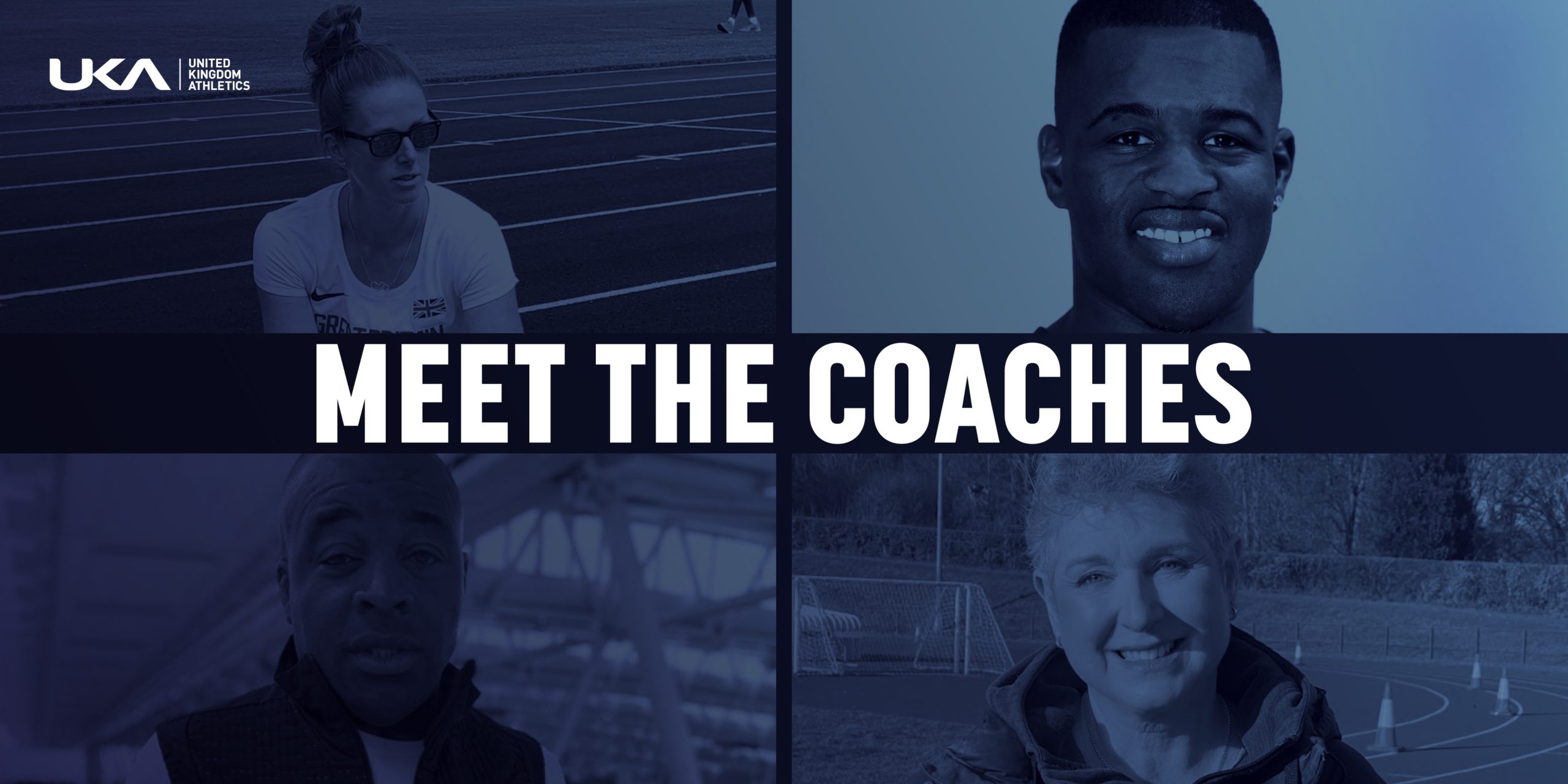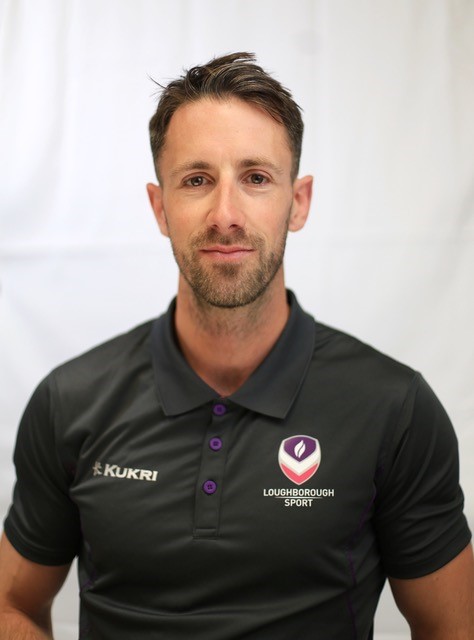
20th October 2022
MEET THE COACHES: DAVID FEENEY
David Feeney
(Combined Events)

What is your athletics background?
I got involved in the sport through a local primary schools athletics competition. I was part of a crop of promising kids within the Amber Valley Borough of Derbyshire who had little opportunity to pursue athletics locally, so the local sports development unit set up Amber Valley Athletics Club in 1999. I attended the very first club training session and competed for the club right up until the end of my competing days some 18 years later.
Athletics quickly became a bit of an obsession! I would record everything athletics related that appeared on TV and because my parents were both newly qualified coaches at the club, the house was always full of coaching VHS tapes, coaching textbooks and photocopied articles. Naturally this set the trajectory for me to get into coaching once the opportunity allowed.
Amber Valley initially had access to just a cricket pitch and an indoor basketball court before relocating to a track in 2006. Despite the humble beginnings, past and present club members now include Olympians and several GB age-group and senior internationals. As a small club with limited coaching resources, young athletes (and coaches) were encouraged to pursue multiple events. As a result, I developed an instant passion for combined events which I pursued right into adulthood before focussing on the 110m hurdles once the demands of full-time work as a Technical Manager curtailed my decathlon ambitions.
Although being far from the most gifted athlete in the world, I managed to make several British Championships 110mH finals and competed for Scotland on a number of occasions, competing until 2017 when I decided to hang up my spikes.
How long have you been coaching and in what field?
Although I achieved my level 1 qualification 18 years ago, I’m now entering my ninth year of what I would consider to be committed coaching.
My current group is a mix of decathletes and heptathletes but I never intend to limit myself as just a combined events coach. I believe that coaches should be well versed across multiple events even if the coach prefers to have an event specialism. Athletics in the UK suffers from young athletes being pigeon-holed early in their careers. Coaches who chose to diversify their technical understanding across multiple events are more inclined to give young athletes a broader experience within the sport. I believe this is a far healthier approach to maximising an athletes longer term success.
What brought you into coaching?
When Amber Valley AC was formed there was an instant need to recruit and train volunteer coaches. My parents quickly got involved as coaches and I was encouraged to begin my coaching journey by completing my level 1 qualification aged 16. I then started to coach at the club once my own sessions had finished assisting with whatever event the kids wanted to do at the time. I would also coach on the UK Athletics Startrack summer camps and assist with Derby Schools training days.
Many years later I was asked by my parents to help out with 14-year old Niamh Emerson’s coaching as she was beginning to pursue an interest in combined events despite training primarily as an 800m runner at the time. This was the real start of my coaching journey and when Niamh moved to study at Loughborough University four years later we quickly established a group of nine heptathletes which set the platform for the years to come.
For the last 12 months I have worked as Lead for Combined Events at Loughborough University – a dream job that came after many years of bombing 40 miles down the M1 (always at the national speed limit of course) straight after work to make the evening training sessions. I also coach the Loughborough cohort of combined eventers on the Youth Talent Program.
What do you consider your biggest achievement from a coach perspective?
I’m privileged to have had a team of coaches supporting me throughout my coaching career which has allowed me to coach four heptathletes to over 6000 points over the space of just five years. This would not have been possible without the coaches and practitioners supporting me along the way. It’s been a team effort.
It was an honour to support Niamh Emerson through to winning a world junior title in 2018 and watching her achieve her first Commonwealth and European senior medals as a teenager but I’m equally as proud of the little wins along the way that often go under the radar. Combined eventers can often feel as though they compete in the shadows of individual events and to see athletes achieve their own ambitions and be a part of their unique journey is a true motivator and a great privilege.
What is your coaching philosophy?
I’m a big believer in giving athletes the opportunity to be well-versed in multiple events before any specialism is even considered. All athletes should be able to hop, skip, land, bound, throw and run with a kinaesthetic awareness of what contributes to efficient movement. Elite athletes bring different attributes to the table, but they all perform the fundamentals well.
For the heptathlon/decathlon specifically, I view them as one event rather than 7/10 individual events. I consider the interplay of training elements and ensure that each day relates to the day that follows to maximise the athlete’s opportunity to develop technically and to maximise whichever adaptation we are chasing at any given time. The emphasis of training elements may vary month to month but speed qualities are trained all year round. Life as a combined eventer is just easier if you can get from A to B faster than everyone else!
What keeps you motivated?
I’m a real student of the sport and always enjoy learning and building up my experience. I feel that I’m quite introspective and have an innate passion to be the best coach I can be. The thirst for knowledge and personal development is a big motivator.
I love seeing athletes achieve their goals and having the opportunity to share the moment with them. There’s nothing quite like it. On the flip side it’s tough when athletes get injured or fall short of their expectations when you know that you as the coach have accountability. That weighs heavy on me, but I accept that you can’t ride the highs without having to experience the lows.
It only feels like yesterday when I was eating, sleeping and breathing decathlon so I know how much it means for the athlete to be supported on their own performance journeys. You get a small window of youth to be the best athlete you can be, so I always want my athletes to have the best opportunity to achieve what they want during this precious period in their lives.
What are your ambitions for 2023 and beyond?
I’ve amassed a lot of experience of working with heptathletes over a relatively short period of time but of late I’ve spent more time developing with a crop of young decathletes so I’m keen to see how these lads develop over the next few years.
I’m also keen to ensure that Loughborough University continues the reputation of developing successful combined event athletes.


